Discover Joe Lonsdale: American Optimist
Joe Lonsdale: American Optimist

Joe Lonsdale: American Optimist
Author: Joe Lonsdale
Subscribed: 309Played: 7,124Subscribe
Share
© Joe Lonsdale
Description
American Optimist, hosted by Joe Lonsdale: entrepreneur, investor, and founder of four multi-billion dollar companies and other mission-driven organizations. American Optimist is an alternative to the fear, cynicism, and zero-sum thinking in mainstream media. Learn from the innovators and leaders who are solving our nation’s most pressing challenges, and doing it in a way that will lift everyone up. Hope should dominate our discourse, and American Optimist will show you why.
blog.joelonsdale.com
blog.joelonsdale.com
137 Episodes
Reverse
This week, OPM Director Scott Kupor launched the U.S. Tech Force to recruit an elite cohort of engineering talent into the federal government. What will it take to make public service cool again? What can he do to ensure the government hires, fires, and promotes based on performance? And what is he doing on merit and aptitude tests that could be one of the most important reforms of Trump’s entire presidency?We’re joined by Scott for a timely conversation about Tech Force, his role as Director of the Office of Personnel Management, and key civil service reforms. Previously, Scott built one of the leading venture capital firms as Managing Partner of Andreessen Horowitz. He also penned “Secrets of Sand Hill Road,” a definitive guide for raising capital and navigating the startup world.We begin our conversation with the importance of Tech Force — a two-year program designed to surge top programmers and designers into Washington, D.C. and create an enduring talent pipeline between the public and private sectors. Next, we explore Scott’s career in Silicon Valley, how he helped build a16z from the ground up, and the lessons he’s bringing to the White House. Then, we dive into his ambitious OPM agenda, starting with addressing rampant performance inflation, improving incentives for top performers, and removing artificial barriers, like years of service or college degrees, so we can get the best talent into the right jobs. Finally, we revisit the Pendleton Act of 1883 and how to bring merit back into civil service. Learn how Scott overturned a consent decree that will allow him to bring aptitude tests back into federal hiring — this could be one of the most consequential achievements of the Trump entire presidency! This is a public episode. If you would like to discuss this with other subscribers or get access to bonus episodes, visit blog.joelonsdale.com
For decades, Philip Howard has been sounding the alarm: our government is broken, and tinkering around the edges won’t work. We need a new operating system. How did it break? What do both parties get wrong? And what will it take to revive the American spirit?Philip is the Founder of the Common Good, best-selling author, and one of the leaders in government and legal reform. His book “The Death of Common Sense” became a powerful force for bipartisan reforms in the 1990s between President Bill Clinton and Congressional Republicans. I’ve followed his work for many years, and his newest book, “Saving Can-Do,” offers important frameworks for injecting accountability and human judgement back into governance.We begin with the genesis of the red tape state, and why Philip believes the collective guilt of the 1960s led to well-intentioned but ill-designed policies that broke the government. He explains how law began to supplant human judgment, politicians stopped making hard decisions, and governance was outsourced to an instruction manual run by the professional class. Case in point: there are now 150 million words of binding federal rules, most added post-1970. The U.S Constitution, by contrast, is 7,500 words. Next, we dive into his new book, beginning with what makes the American “can-do” attitude unique. Then, he offers solutions for reinstating human authority into our institutions. And finally, a new framework for enabling America to build again. Philip makes the compelling case that what our republic needs most of all is a return to accountability over compliance, amateurs over professionals, and liberty over safetyism. This is a public episode. If you would like to discuss this with other subscribers or get access to bonus episodes, visit blog.joelonsdale.com
Michael Kratsios is the man of the hour, charged by President Trump to usher in the golden age of AI and American innovation. How is the White House approaching this revolution in technology? What does AI mean for the American worker? How do we stay ahead of China — and also persuade other nations to adopt U.S. tech over Chinese?We hosted this conversation at the 2025 Cicero Institute Courage Awards, where we recognize bold policymakers on both sides of the aisle for standing up to special interests and fighting for liberty. Amid the regulatory battle over AI, we were honored to feature Michael, who currently serves as Director of the White House Office of Science and Technology Policy and a Senior Advisor to President Trump. In the first Trump term, he was the nation’s Chief Technology Officer and later acting Under Secretary of War for Research and Engineering. He started his career working for Peter Thiel, first at Clarium Capital and later Thiel Capital.We began our conversation with Michael’s journey to the White House, and his role leading the White House’s science and technology policy agenda. He outlined three key areas to winning the AI race: the right regulatory frameworks, the necessary infrastructure, and international engagement. How do we not only stay ahead of China but also persuade other nations to adopt our AI stack? Michael lays out the strategy. He also makes the case for a federal AI standard and explains why a patchwork of laws stifles innovation, hamstringing the upstarts and entrenching the incumbents. Finally, he lays out what AI will mean for the American worker, and as the man in charge of overseeing AI, quantum, space, and more, he reveals what keeps him up at night. We have a generational opportunity with AI to bring down the cost of living and lift up millions of lives; we’re grateful to have leaders like Michael at the helm. This is a public episode. If you would like to discuss this with other subscribers or get access to bonus episodes, visit blog.joelonsdale.com
Do great men alter the course of history, or is everything more bottom-up than we realize? Or both? We credit Thomas Edison for the light bulb, but what about the 20 competitors that were right on his heels? What can the evolution of language, biology, and complex systems teach us about entrepreneurship, investing, and the conditions for human progress?Matt Ridley’s writings have influenced how builders, investors, and policymakers understand the world, myself included. A former member of the House of Lords, The Viscount Ridley is a prolific columnist and author whose works range from The Rational Optimist and The Evolution of Everything to The Red Queen: Sex and the Evolution of Human Nature. An intellectual army of one, Matt has taught millions that the free exchange of ideas produces the next great innovation, not top-down policies, no matter how well-intentioned. He’s also been a rare voice of courage in the United Kingdom, fighting against free speech crackdowns, insane energy policies, and corrosive regulations.We begin with Matt’s dire warning about the UK and its rapid descent into economic stagnation and cultural turmoil. Is this great civilization doomed? Learn where Matt sees glimmers of hope, and get a preview of his next book on the future of the West. Then, we dive into lessons from Matt’s great works, from the impact of mating choices in birds and other fascinating scientific research to the evolution of ideas and conditions for innovation. If Steve Jobs didn’t exist, would there have been a pioneer of the personal computer? Matt says yes, and you’ll hear his compelling case. His frameworks have helped shape how some of us think about technological revolutions and strategy. We also cover the AI race with China, including Matt’s perspective on industrial policy and why he believes China is not as strong as many think. Finally, we spar over religion -- Matt’s a longtime atheist -- and whether America can survive as a post-religious society.00:00 Episode intro01:45 Is the UK doomed?11:40 Matt’s next book and why he’s touring the US 16:29 The extraordinary implications of Charles Darwin’s strangest idea22:00 Industrial policy & tech race with China27:45 Evolution of everything vs Great Man Theory35:20 Can a post-religious America survive? 39:20 Reasons for optimism This is a public episode. If you would like to discuss this with other subscribers or get access to bonus episodes, visit blog.joelonsdale.com
In 2023, Memphis earned the distinction of the nation’s most violent and dangerous city. Senator Bill Hagerty had seen enough. Together with President Trump, he helped orchestrate the most important public safety initiative you probably haven’t heard of — until now. Thousands of criminals arrested, dozens of children rescued, and they even figured out how to work around a Soros-backed District Attorney. This is just one of many fronts Sen. Hagerty is leading on since joining the U.S. Senate. A businessman by background, Sen. Hagerty began his career at Boston Consulting Group, growing the business in key markets like Japan, before launching his own private equity firm. In 2011, he stepped up to serve, bringing billions of dollars of investment into Tennessee as the state’s Commissioner of Economic and Community Development. In 2017, he was appointed U.S. Ambassador to Japan and played a critical role in bolstering our alliance and countering China, before being elected to the U.S. Senate in 2020. We begin with the Senator’s diagnosis of the government shutdown and whether Republicans should end the filibuster and break the gridlock. Then, we dive into the Memphis Task Force and the Senator’s groundbreaking work to partner with the White House and a Democratic mayor to save a great American city. More than a dozen federal agencies have quietly surged into Memphis; they’ve arrested thousands of criminals, and better yet, are doing it in a way that prevents the Soros-backed DA from releasing them back on the streets. Next, we discuss the Senator’s business career and path to ambassador. One of his great successes: accelerating the delivery of U.S. weapons to Japan — a process that used to take five to seven years! Finally, we cover his leadership on stablecoin legislation — the GENIUS Act — and how he’s approaching regulatory frameworks for crypto, AI, and other emerging technologies. Sen. Hagerty has quickly become a key leader in the U.S. Senate, and you’ll see why. 00:00 Episode intro 01:20 Government shutdown; end the filibuster? 09:05 Memphis Safe Task Force 14:47 xAI in Memphis & new opportunities 20:10 Boston Consulting Group to Ambassador to Japan 25:45 Accelerating Foreign Military Sales to allies 28:46 USAID & how to reform foreign aid 31:14 GENIUS Act; leading on stablecoin legislation and crypto 33:37 How to approach AI regulation 38:55 Optimism for the future This is a public episode. If you would like to discuss this with other subscribers or get access to bonus episodes, visit blog.joelonsdale.com
Joe Liemandt is a legend in the technology world. Starting in the 1990s, he built a multi-billion dollar software empire, before quietly stepping out of the public spotlight for 20 years. Now, he’s back to reveal his next breakthrough: new schools that can 10X learning in two hours a day with AI and the right incentives. What were the discoveries that led him here? Why is he confident he can save American education? And how is he planning to get this to a billion kids worldwide? Join us for a special episode with one of the great entrepreneurs of the digital era. In 1989, Joe Liemandt dropped out of Stanford to found Trilogy, which he describes as “the first AI product to sell a billion dollars.” He also pioneered Trilogy University — the grueling boot camp that Google and Facebook later copied — and famously outcompeted Microsoft for talent, drawing thousands of top engineers to Austin. On top of that, he added a software acquisition firm, ESW Capital, and scaled it to massive success. Today, he’s the principal of Alpha School, a revolutionary new education model that already has its students performing in the top one percent nationwide. We begin with the origins of Trilogy, from building “configurators” and the earliest AI systems to creating its iconic, ultra-competitive culture. Then, we break down the acquisition strategy that turned ESW Capital into a massive success, before turning to Joe’s new mission: saving American education. Before joining Alpha, he went deep into the science of learning, notably backing Harvard economist Roland Fryer’s inner city research. Fryer experimented with paying teachers, parents, and students for good results — the findings shocked the education world and became foundational for much of Joe’s work. Learn how the right incentives combined with the best in AI have Alpha’s third and fourth-graders outperforming the average high-school graduate. Plus, we explore Joe’s ambitious vision for the future and how school choice can help get this model into classrooms nationwide. The U.S. has spent trillions on K-12 with little or nothing to show; meanwhile, China and other advanced economies have raced far ahead in education performance. If Joe succeeds, he will fundamentally transform education, and the future of our republic, and that’s something to get excited about.00:00 Episode intro 01:53 Stanford dropout/origins of Trilogy 06:05 Trilogy University 09:08 Roland Fryer & paying kids for good grades 12:07 Why Joe is betting $1B on education 16:55 Kids must love school more than vacation 24:45 “The most controversial thing I’ll say today” 31:56 Why Alpha pays kids for top scores 36:52 Will this work for low-income kids? 42:57 Battle over AI & school choice 46:58 How should we teach history? 51:20 Joe’s grand vision for the future This is a public episode. If you would like to discuss this with other subscribers or get access to bonus episodes, visit blog.joelonsdale.com
Universities called for “free speech” after Charlie Kirk’s murder — UATX President Carlos Carvalho says they’re missing the point entirely. Is more speech really the answer? Should universities stay neutral and out of politics? Or do they have a higher duty, especially now?We discuss these questions and more with the new President of the University of Austin: Carlos Carvalho. Born and raised in Brazil, he watched his father — a Navy officer — help fight back against a communist takeover attempt in the 1960s. Carlos came to America and earned his Ph.D. in statistics from Duke University. He taught at the University of Chicago before spending 15 years as a professor at the McCombs School of Business at the University of Texas, where he also founded the Salem Center for Policy to promote open debate and inquiry on campus. Carlos is an academic, a builder, and believes deeply in the promise of America; he’s uniquely talented and suited to lead the most ambitious new university project in more than a century.We begin our conversation with the aftermath of Charlie Kirk’s murder, and the debate over the role of universities. Learn why Carlos believes “free speech is not enough” and why academia has a duty to stand on, and defend, America’s founding principles, while drawing an important distinction between politics and partisanship. Next, we discuss his upbringing and lessons from fighting the communists in Brazil, including his father’s sage advice: “Learn math, learn languages, and always watch out for the communists!” Finally, we hone in on what sets UATX apart and what it looks like to train a new elite equipped with the best of the old world and the new, plus the courage and entrepreneurial energy needed to save our civilization.00:00 Episode intro01:50 “Free speech isn’t enough” 06:42 Is “Institutional neutrality” the right approach?13:50 Fighting the communists in Brazil 21:06 How the far-left captured business schools 26:45 What sets UATX apart? 32:33 Old world meets new; bringing entrepreneurship to higher ed40:05 Why is UATX tuition free? 44:00 Navy SEAL formula for higher ed This is a public episode. If you would like to discuss this with other subscribers or get access to bonus episodes, visit blog.joelonsdale.com
America’s cities are dangerous and broken, and for too long, governors stood by as city officials failed their citizens. But Oklahoma Governor Kevin Stitt has stepped up to prove that we don’t have to tolerate incompetence or lawlessness. What bold actions did he take? Why were the results shocking? And how can his leadership be a model for other governors? We’re joined this week by businessman-turned-governor Kevin Stitt. In 2000, he launched Gateway Mortgage with just $1,000 and a computer; when he departed, it was one of the largest privately held mortgage companies in the country. He ran for governor having never sought public office before, and since taking the helm, he’s run the state like a business: slashing regulations and restoring fiscal responsibility. During his tenure, Oklahoma has become one of the fastest growing states in the country. We begin our conversation with Operation Safe — the governor’s bold initiative to clean up homeless encampments and criminal activity in Tulsa after city officials let the problems fester for years. Learn about the extensive theft, drugs, and crime they exposed, while cleaning up nearly 2 million pounds of trash! More importantly, the governor restored safety and order for families and businesses, while helping the homeless seek real treatment and get off the streets. Gov. Stitt explains how President Trump’s executive order on crime and disorder paved the way for more state leaders to take action, and now that he’s proven what’s possible, city officials in Tulsa and elsewhere are on notice that their failures will no longer be tolerated. Next, we discuss innovative solutions that can empower citizens to hold their local officials accountable. Imagine an app that gives individuals or businesses a tax rebate if they report illegal activity and the city fails to address it — that’s what the Cicero Institute is working toward, and Gov. Stitt loves the idea! We also discuss how states can use their power to hold NGOs accountable and ensure taxpayer dollars are solving homelessness, not perpetuating it. Finally, we discuss Iryna Zarutska’s murder and the strong, but necessary, steps we need to take to deal with violent, repeat offenders. Gov. Stitt’s leadership gives us real hope that other state leaders, especially in red states, will step up, enforce the law, and prioritize the safety of the American people. 00:00 Episode intro 01:44 Operation Safe - stepping up to save Tulsa 05:48 Needles, theft & 2 million pounds of trash 10:15 Corrupt NGOs & weak politicians 13:40 Citizen apps to hold govt accountable 17:55 Soros influence in our cities 21:20 Iryna Zarutska & violent repeat offenders This is a public episode. If you would like to discuss this with other subscribers or get access to bonus episodes, visit blog.joelonsdale.com
Zachary Levi is best known for starring in the popular TV series Chuck and hit movies like Shazam!, while millions of children, my daughters included, know him as Flynn Rider in Disney’s Tangled. But recently, he did something even more noteworthy in his industry: he endorsed Robert Kennedy Jr. and later President Trump, while openly sharing his Christian faith. Why did he put his career at risk? What’s the story behind his $100 million studio project in Texas? And will AI open new doors for actors and writers, or will it supplant human ingenuity and, ultimately, millions of jobs? Join us for a fascinating look behind the Hollywood curtain with a counter-cultural leader, and a spirited debate over technology’s impact on the human condition. We begin the conversation with Zachary’s courage to speak out ahead of the 2024 elections, and the role of leaders to put principles ahead of self-preservation. Next, we reflect on the legacy of Charlie Kirk, and his ability to engage his opponents with both truth and compassion. In contrast, not a single actor had the temerity to invoke Charlie at the recent Emmy Awards, and Zachary takes us behind the curtain to explain how a quintessential American institution like Hollywood capitulated to woke ideologues. And he’s not just speaking out, he’s also building an alternative: learn about Wyldwood — a $100 million studio project outside Austin aimed at reviving great art and providing a new kind of community for artists. Finally, Zachary discusses AI’s impact on Hollywood, and why he worries it will eventually consume the creative arts. He and I see the AI landscape very differently — his take is more pessimistic, mine more optimistic — but we have a fun debate, and ultimately agree that it’s our job as leaders to build toward solutions that lift up humans and preserve the values that make our civilization great. 00:00 Episode intro 01:40 Speaking out in Hollywood 07:10 Debating politics with truth & compassion 15:23 Charlie Kirk & Hollywood’s demise 20:10 Building a new type of Hollywood 25:51 Technology vs humanity - are we better off now than 1950s?33:25 The merits of capitalism: Jeff Bezos vs Elon Musk 41:41 Debating AI & technological progress 50:05 Will AI create or replace millions of jobs?56:45 The role of leaders / optimism for the future This is a public episode. If you would like to discuss this with other subscribers or get access to bonus episodes, visit blog.joelonsdale.com
Max Meyer is the Editor and Publisher of Arena — an American technology magazine that is pro-America and pro-technology! How did legacy media become cynically motivated and ideologically captured? Will "AI slop" only make things worse? And, most importantly, what is the antidote?We discuss these issues and more with the entrepreneur and writer behind one of America's most exciting new media outlets. Before launching Arena, Max studied geophysics at Stanford University and served as editor of the Stanford Review, where he drew national attention for his investigative reporting, including exposing former San Francisco District Attorney Chesa Boudin's ties to Venezuelan dictator Hugo Chavez.We start with the fall of once-great magazines, like Scientific American, and why Max is going all-in on high-quality, shoe-leather journalism that stands the test of time. Next, we discuss the evolution of journalism from a working-class to elite profession, the implications therein, and why the attack pieces and hit jobs are starting to backfire. We dive into some of Arena's recent work, from the first-ever profile of Anduril CEO Brian Schimpf to covering breakout industries and entrepreneurs routinely overlooked by mainstream newsrooms. Then, we talk about Max's time as editor of the Stanford Review, and carrying on the tradition started by Peter Thiel and other editors, myself included, of challenging campus groupthink and defending Western values. Finally, we address the coming avalanche of "AI slop" and why Max is betting that trustworthy, premium-packaged content will stand apart from the noise. Learn why top builders and leaders are reading Arena -- and subscribe here to get the magazines. You can use code “JOE30” at checkout to get a 30% discount off your first year subscription!NOTE: This episode was recorded before the murder of my friend Charlie Kirk.00:00 Episode intro 01:38 What is Arena? 06:00 Why is journalism broken? 09:50 How Wired, TechCrunch, etc. went off the rails 15:07 Why Max is betting on premium, high-end media 19:00 Exposing Marxists as Editor of the Stanford Review 21:20 Should we be worried about AI slop? 25:58 What's next for Arena? This is a public episode. If you would like to discuss this with other subscribers or get access to bonus episodes, visit blog.joelonsdale.com
Harish Abbott is a serial entrepreneur at the forefront of the logistics revolution. He sold his last company to Shopify in 2022 for over $2 billion, and now he's back in the arena again. What are the new possibilities with AI? How will it impact workers? And what's the business opportunity he sees that no one else does? Harish is the co-founder and CEO of Augment, a new platform building AI teammates for logistics operations. Its first product, Augie, already boasts $25 billion in freight under management. Previously, Harish co-founded Deliverr, an e-commerce fulfilment platform (acquired by Shopify) that provided one and two-day shipping to smaller merchants. He started his career at Amazon Fulfillment, where he helped build industry-leading technologies and transform online shopping as we know it. We begin with Harish's background, why he came to America to build, and what makes our innovation economy unique. We discuss his most important lessons learned at Amazon, from Jeff Bezos obsessing over customer satisfaction to the company's unique writing culture. Next, Harish explains the origins of Deliverr, how he built a delivery network for the non-Amazon and Walmart world, and lessons learned from selling to Shopify. Then, we dive into the inflection point that sparked Augment, and how advances in LLMs can now manage vast asynchronous workflows and transform how information is traded. Learn why Harish sees a trillion dollar global opportunity to reduce waste in logistics, how he plans to capitalize on it, and why he believes AI can elevate brokers and shippers to higher-order thinking — a win for humans and the economy. 00:00 Episode intro 01:38 Merit matters & why build in the U.S. 05:00 Lessons from Amazon & Jeff Bezos 10:29 Deliverr & bringing next-day shipping to non-Amazon world 17:15 AI & the next logistics revolution 23:58 Meet Augie - the AI teammate for logistics 28:35 The trillion dollar opportunity 32:05 The AI talent battle 38:56 Reasons for optimism This is a public episode. If you would like to discuss this with other subscribers or get access to bonus episodes, visit blog.joelonsdale.com
Sen. Eric Schmitt is a fighter for our country — and knows how to win. In November 2022, as Missouri Attorney General, he sued the Biden administration for colluding with Big Tech to impose mass censorship on the American people. His actions exposed the most chilling government intrusion of our time, and launched a groundswell of opposition, culminating in Elon Musk buying Twitter. What was his strategy? How can it combat further government overreach? And how can we outsmart the far-left when it comes to redistricting, stacking the Supreme Court, and other battlegrounds? We discuss this and more with Senator Schmitt, author of the new book: "The Last Line of Defense: How to Beat the Left in Court." After serving as Missouri Attorney General, he was elected U.S. Senator, and currently serves on the all-important Judiciary and Armed Services committees. We begin with Sen. Schmitt's working class upbringing and his inspiration for running for office. Then, he reveals how he architected Missouri v Biden to expose the unholy alliance between the Biden White House and Big Tech to censor contrarian views (myself included, as it was later revealed in the Twitter Files). He also details his lawsuit against communist China for covering up COVID, winning $24 billion in damages for the people of Missouri. Next, we jump to his priorities in the Senate, and why he's pushing Republicans to get more aggressive, whether it's protecting the Supreme Court from court packing, defending redistricting, or securing an increase in FBI agents to crackdown on violent crime in St. Louis. Finally, we get his take on AI, and why he's wary of opportunities for censorship, but also bullish on robotics and automation bringing manufacturing back to the heartland. 00:00 Episode intro 05:00 Exposing Biden's mass censorship 09:30 How the FBI covered for Hunter Biden 15:18 Redistricting, packing SCOTUS, and next battlegrounds 21:40 Suing the CCP -- and winning 24:45 What have you learned in the Senate? 28:30 AI & Manufacturing renaissance This is a public episode. If you would like to discuss this with other subscribers or get access to bonus episodes, visit blog.joelonsdale.com
This week, we're honored to be joined by Venezuela's "Iron Lady" — Maria Corina Machado. She's been physically assaulted, forced into hiding, and separated from her children, but that hasn't stopped her from standing up to dictators and fighting for liberty. Right now, she believes the end of Nicolas Maduro's regime is closer than it's ever been, and a bright new future for Venezuela — and the entire region — is in sight.In the early 2000s, Maria set aside her business and career aspirations to lead a recall against Hugo Chavez, quickly earning a reputation as his "most detested adversary." She went on to serve as an elected member of the National Assembly of Venezuela from 2011 to 2014, becoming a key leader in the widespread 2014 protests against Maduro. Leading up to the 2024 presidential election, she won her party's primary elections, but was disqualified and forced out by Maduro and his cronies. Still, her opposition party went on to win overwhelmingly, and Maduro has since rejected the results and refused to relinquish power.We begin with the tragic downfall of Venezuela, from the wealthiest country in South America to poorer than Haiti. Learn how socialism brought one of the world's most energy rich countries to its knees, and instead became the criminal hub of Latin America, flooding the U.S. with drugs and narco terrorism while providing safe harbor to Russia, Iran, Hezbollah, and other enemies. President Trump has taken strong actions in recent months, from placing a $50 million bounty on Maduro to designating cartels as terrorist organizations and directing the U.S. military to go after them — we get Maria's take on the President's policies and what else she hopes to see from our leaders in Washington. Many Americans are rightfully wary of foreign interventions; Maria explains why she doesn't see it as regime change but rather dismantling an international criminal enterprise. Finally, we cover Maria's personal journey and sacrifice, why she continues to fight even with threats against her life, and her ultimate vision for a free and prosperous Venezuela that becomes an energy powerhouse for the Americas.00:00 Episode intro02:30 How Venezuela became a criminal hub09:45 What's the right US policy? Regime change?16:24 Parallels between Chavez & the far-left in the U.S.22:17 Maria's personal story & sacrifice26:36 Maria’s vision for a free Venezuela This is a public episode. If you would like to discuss this with other subscribers or get access to bonus episodes, visit blog.joelonsdale.com
Reusable rockets, new economics, and surging investment are quickly making space one of the most promising areas for growth and innovation. Like other areas of defense, we're in a transition from billion-dollar, exquisite satellites to the proliferation of attritable platforms. What are the new markets and opportunities this creates? How will the Golden Dome impact the space race and competition with China? And what exciting possibilities, like asteroid mining, are in our future?This week we talk all things space with Ian Cinnamon, co-founder and CEO of Apex Space, a satellite platform company. A graduate of MIT and Stanford Business School, Ian first launched a startup incubator, Superlabs, with Mark Pincus before founding Synapse, a computer vision company later acquired by Palantir. There, Ian worked on key initiatives like Project Maven before leaving to build Apex, and bring speed and efficiency to satellite platform manufacturing.We begin with Ian's entrepreneurial journey and how his research at MIT informed the creation of Synapse. A top talent at Palantir, he reveals what it was like working on Project Maven — and the protesters that inspired him — plus the "light bulb moment" that led him to launch Apex. Next, we dive into the space boom and how SpaceX upended the entire way we think about, and build, for space. Learn about the unique challenges of engineering for space, why Apex is moving toward full vertical integration, and how it plans to meet skyrocketing demand for more launches. We also discuss President Trump's ambitious Golden Dome project, new possibilities for space-based interceptors, and China's plans to overtake U.S. supremacy in space. Finally, we conclude with Ian's most exciting innovations beyond Earth, and why asteroid mining isn't as far-fetched as you might think.00:00 Episode intro02:09 MIT, cognitive science & building Synapse06:17 Palantir, Project Maven, and protestors8:53 Ian's "light bulb moment" for building Apex15:23 The space boom & new possibilities21:30 Engineering for space and lessons from SpaceX27:50 China's ambitious space plans30:19 Golden Dome & space-based interceptors36:00 Understanding orbit altitudes for satellites40:00 Is China trying to steal your IP?44:13 Asteroid mining and new possibilities beyond Earth This is a public episode. If you would like to discuss this with other subscribers or get access to bonus episodes, visit blog.joelonsdale.com
This week we're talking dental billing! Why? Because large parts of the $5 trillion US services economy, like medical billing, are inefficient and dysfunctional, which holds back growth and increases costs for Americans. How is AI transforming these broken sectors? What's possible now that wasn't just a few years ago? And if AI can revolutionize dental billing, what does that mean for productivity at large?We dive into the AI services wave with DayDream's Shreyas Parab, co-founder & CEO, and Anton Lin, co-founder & CTO. DayDream is applying AI to transform revenue cycle management (RCM) for dentists, and helping them recover the money they are owed faster and more effectively. Chasing down errant claims can take humans years; DayDream is doing it in weeks with AI agents!We begin with the broken state of medical billing -- thousands of rules per company, little written down, and knowledge passed down person-to-person like an ancient religion. Shreyas and Anton explain how LLMs can reason through unstructured processes in ways that previous business logic couldn't. Next, we discuss the lost revenue from missing claims (nearly 20% of all claims!), and how AI agents are becoming so effective that humans can't tell the difference. This raises the obvious question: will agentic solutions result in mass layoffs? Shreyas and Anton say the opposite is true -- AI is enabling billers to operate at higher levels and focus on expanding the business instead of waiting on hold with insurance companies. If top talent plus AI can revamp Byzantine systems like dental billing, there's a tremendous opportunity to reform the entire services economy. This means economic growth, and disinflation that benefits everyone.00:00 Episode intro01:35 What’s so important about dental billing?07:50 Will AI destroy dental billing jobs?9:50 AI agents are becoming indistinguishable from humans17:45 Private equity rolling up dental24:56 Understanding the AI services model This is a public episode. If you would like to discuss this with other subscribers or get access to bonus episodes, visit blog.joelonsdale.com
Reid Hoffman is a longtime leader in Silicon Valley and vocal AI optimist; he's also a major Democratic Party donor. What happens when AI runs headfirst into labor unions and key Democratic interests? Why is Reid calling out his party for alienating Silicon Valley? And can a divided country unite around a positive AI future?Join us for an important conversation at the intersection of technology, politics, and policy. An early member of the PayPal mafia, Reid went on to co-found LinkedIn and became a prolific investor as Partner at Greylock and Chairman of Village Global. He's also a Microsoft board member, popular podcast host, and author, most recently of “Superagency: What Could Possibly Go Right with Our AI Future."We begin with lessons from PayPal and the unique culture that united an iconic cast of characters. Then we dive into Reid's latest book "Superagency" and his case for AI optimism. Reid's enthusiasm collides with Democratic Party strongholds, so I challenged him on how he reconciles these conflicts and whether AI can win out over special interests. Case in point: autonomous trucks. Reid's a key investor in Aurora, which is based in California but launching its first trucks in Texas. Red states are increasingly the laboratories of innovation and growth, which Reid acknowledges and admits is a major challenge that he raises with blue-state governors. Next, we discuss the six levels of the AI investment stack and where Reid is focused, plus his advice for startups amid the scale compute race. We also explore the future of social media and why Reid is creating his own AI clone. Finally, we revisit Silicon Valley's pivot to the right and why Reid is calling out the Democratic Party for prioritizing DEI and identity politics over merit and innovation.We didn't focus the episode on our obvious political disagreements, but rather the areas where we agree: Reid is an optimist and shares that trait with a lot of my PayPal mafia friends even if he doesn't share our worldview. If we're going to accelerate our country into an optimistic AI future and lift up millions of lives -- which I hope to help achieve! -- then we need to have conversations across the aisle aimed at advancing pro-growth, freedom-oriented policies.00:00 Episode intro02:00 What made the PayPal Mafia unique?06:38 The best arguments for AI optimism10:59 Reid's optimism vs Democratic Party strongholds14:15 Inflection AI & lessons for AI startups19:53 Why Reid made an AI clone22:54 AI tutors vs teachers unions26:59 How Democrats alienated Silicon Valley32:56 Pushing back on antisemitism36:38 Advice for entrepreneurs in the AI age This is a public episode. If you would like to discuss this with other subscribers or get access to bonus episodes, visit blog.joelonsdale.com
We're joined this week by a key architect of President Trump's budget and regulatory agenda: Office of Management and Budget (OMB) Director Russ Vought. How much does the Big Beautiful Bill actually rein in spending? Will DOGE cuts become permanent? What is the Impoundment Act of 1974 and why will this be a crucial fight in the coming months? We discuss these timely policy issues and more with the "radical constitutionalist" at the helm of Trump's OMB in his first and second terms. From ending critical race theory at all federal agencies to spearheading historic deregulatory actions and making bureaucrats accountable again, Director Vought has been instrumental in some of the most consequential policy battles in Washington D.C. In this episode, we begin with his efforts to reform the administrative state, and why the next major battle will center on the 1974 Impoundment Act and the President's authority over appropriated funds. Learn why Democrats' retaliation against President Nixon tipped the balance of power toward unelected bureaucrats, and how Director Vought seeks to restore proper constitutional balance. Next, we dive into the Big Beautiful Bill and why he believes it's the most consequential mandatory spending reform to ever pass into law. And when it comes to discretionary spending, he reiterates his commitment to make the DOGE cuts permanent and outlines possible strategies, whether through impoundment or a rescissions packages via Congress. Finally, we talk about his role in winding down one of the most egregious examples of government overreach — the Consumer Financial Protection Bureau — and why Americans should be optimistic that, for the first time in decades, real fiscal and regulatory restraint is starting to take hold in Washington D.C. 00:00 Episode intro 01:43 Role of OMB Director & lessons from Trump’s first term 04:37 The looming battle over impoundment & Presidential power07:25 Can we return merit & tests to government? 12:12 Big Beautiful Bill - how much does it actually cut? 19:41 What's the future of DOGE? 22:03 Dismantling the Consumer Financial Protection Bureau 25:10 Can Washington DC actually be reined in? This is a public episode. If you would like to discuss this with other subscribers or get access to bonus episodes, visit blog.joelonsdale.com
Construction is a $2 trillion U.S. industry ($13 trillion globally) that impacts nearly every aspect of our lives. Yet, building has become too expensive and too slow to meet rising demand and aging infrastructure. What if we can apply breakthroughs from self-driving to construction? And what if we can use AI to operate heavy machinery autonomously 24/7?This week, we bring the AI revolution into the physical world with Boris Sofman, co-founder and CEO of Bedrock Robotics. Founded by three former Waymo leaders, Bedrock emerged from stealth this week to bring autonomy to the construction industry. Boris earned his PhD in Robotics at Carnegie Mellon before founding Anki — a consumer robotics company that produced some of the world's most popular toy robots. After Anki was acquired by Google, Boris became Director of Engineering and Head of Trucking at Waymo, where he was instrumental in Waymo's successful deployment into major cities across the country.We begin with his journey from the Soviet Union to the U.S. as a young boy, and how Boris fell in love with engineering. We discuss the consumer robotics wave and his time building Anki, before jumping into the race for self-driving cars. Get a rare look behind the scenes at Waymo and the extreme engineering challenges Boris and his team had to solve. Next, he reveals the recent developments that unlocked autonomy for heavy construction and the immense potential to transform the cost, quality, and speed of building in the U.S. Already, unions and special interests are lining up against these technologies; learn why Boris believes autonomy will unlock a wave of pent-up demand and create even more jobs and opportunities for humans. Bedrock is one the companies and teams I'm most bullish on, and you'll see why!00:00 Episode intro 02:16 Soviet Union to robotics leader 06:57 Conquering self-driving at Waymo 14:38 Why leave Waymo to start Bedrock? 19:10 How to make heavy machinery autonomous 24:06 AI breakthroughs that make this possible 31:06 Why autonomy will create jobs, not destroy them 37:44 The impact of the robotics revolution This is a public episode. If you would like to discuss this with other subscribers or get access to bonus episodes, visit blog.joelonsdale.com
America's global ascendency was tied to its industrial strength. But since the 1960s, our manufacturing might gave way to white-collar services. Now, we've on the verge of a new AI economy. Is this our moment to reindustrialize? What does it mean for trade and immigration? And how do we make sure everyone, particularly rural America, shares in the potential economic growth? These are some of the most important policy questions that will determine the future of our country, and Marc Andreessen is the right person to ask. Several weeks ago I interviewed Marc, co-founder and general partner at Andreessen Horowitz, for the first annual Ronald Reagan Economic Forum, an alternative to the World Economic Forum that offers a more dynamic, pro-growth view of the future of America and the West. We begin with the debate over tariffs, and what Marc has learned from studying President McKinley, a key inspiration for President Trump's trade views. McKinley's protectionist agenda is well known, but Marc explains why he actually shifted to reciprocal tariffs by the end of his term as manufacturers needed new markets. Next, he details America's transformation into a services-based economy, why it benefited the coasts over the heartland, and the intense political and cultural divides that emerged. Learn why Marc believes that AI plus robotics will provide a unique opportunity to capture the manufacturing jobs of the future and help rural areas share in the upside. We also discuss the debate over immigration and what smart policies look like in an AI-driven economy. Finally, we cover the potential bottlenecks to an AI boom, and how our leaders can position America to lead an industrial renaissance. 00:00 Episode intro 02:18 Understanding McKinley & Trump on tariffs 07:20 Manufacturing to services; America's economic shift 11:30 The great clash between cities & rural America 15:50 Deindustrializing wasn’t inevitable; it was a choice17:40 AI is a fundamental turning point 20:30 Robotics will be biggest industry ever created 23:54 High-skilled immigration + DEI hurts rural kids 29:32 What are bottlenecks to AI boom This is a public episode. If you would like to discuss this with other subscribers or get access to bonus episodes, visit blog.joelonsdale.com
Few people have been as influential as Dave Rubin in the new media movement and fight for free speech. He not only helped expose Big Tech's censorship but also built an alternative platform that enabled other contrarian voices to speak out. Where is new media headed next? Why are Tucker Carlson and others attacking Churchill or dabbling in antisemitic conspiracy theories? And how should we respond to a "woke right"? This week we're joined by the comedian-turned political commentator and entrepreneur who has amassed millions of followers. An original member of the intellectual dark web, Dave challenged the limits of "acceptable speech" early on. After Patreon started censoring right-wing voices, he created Locals, where free speech reigned and power was given back to creators (I was a small investor in Locals, which was later acquired by Rumble). Dave's efforts were key in providing oxygen to alternative media voices and pressuring Big Tech to reform. He's still expanding his influence in media with a new production network, and just launched a long-time passion project: his own tequila company — Copal. Check out their first reposado before it sells out. We begin with Dave's recent visit to UATX, how AI is impacting education, and why he's creating an AI version of himself. Next, we dive into the origins of Locals and how Dave responded to censorship by building his own independent, free-speech platform. He also reveals what it was like inside YouTube during the heyday of Big Tech censorship and how the "Twitter Files" changed the world. Then, we take a tour of Dave's new tequila company before discussing the troubling rise of a "woke right," and why figures like Tucker Carlson are attacking Winston Churchill and flirting with antisemitic tropes. How should free speech advocates confront the spread of these bad ideas? We end with Dave's ideas for how to elevate our culture and move our collective dialogue in a positive direction. [NOTE: this episode was recorded before the United States and Israel struck Iran's nuclear facilities.] 00:00 Episode intro 01:57 Intellectual dark web & Dave's impression of UATX 04:37 Why Dave is making AI version of himself 08:45 The origins of Locals & Dave's fight for free speech 12:40 Dave's new tequila company 18:00 Should we trust a changed BigTech? 25:20 Tucker vs Churchill 33:30 The Woke Right? 38:00 Did the Democratic Party get hijacked? 46:00 Can optimism prevail over conspiracy theories? This is a public episode. If you would like to discuss this with other subscribers or get access to bonus episodes, visit blog.joelonsdale.com


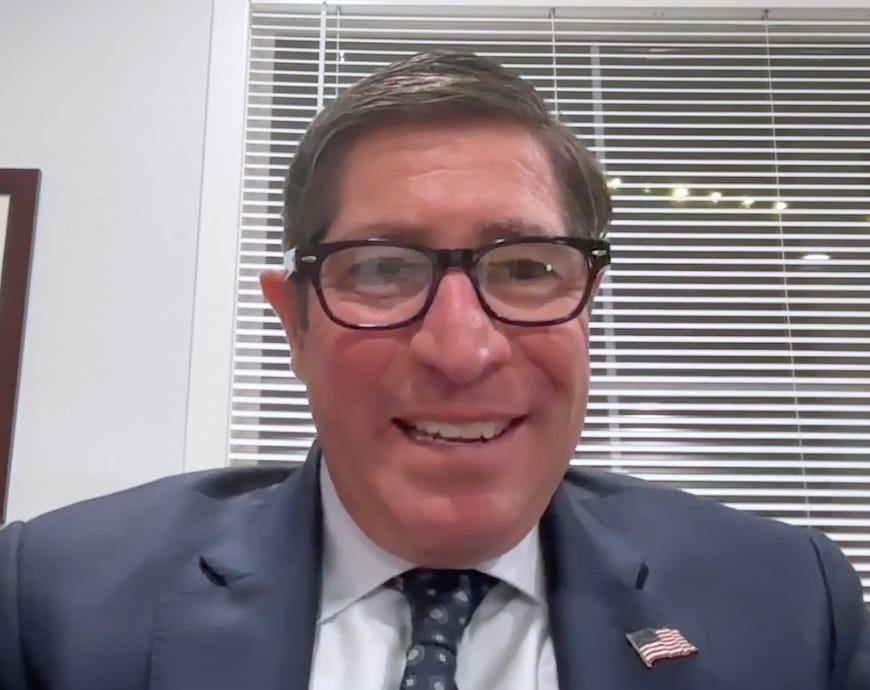
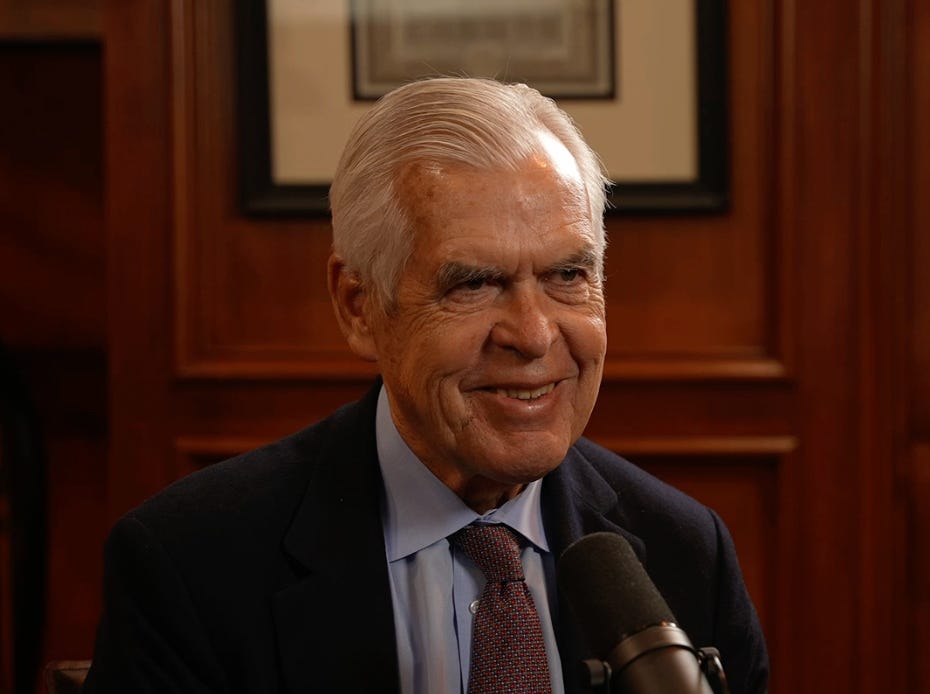
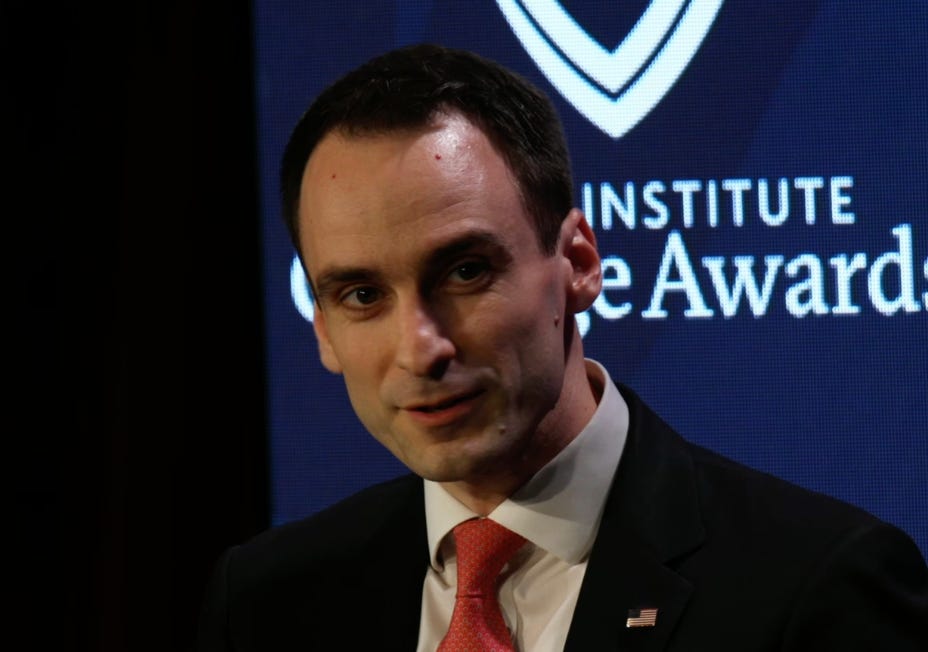
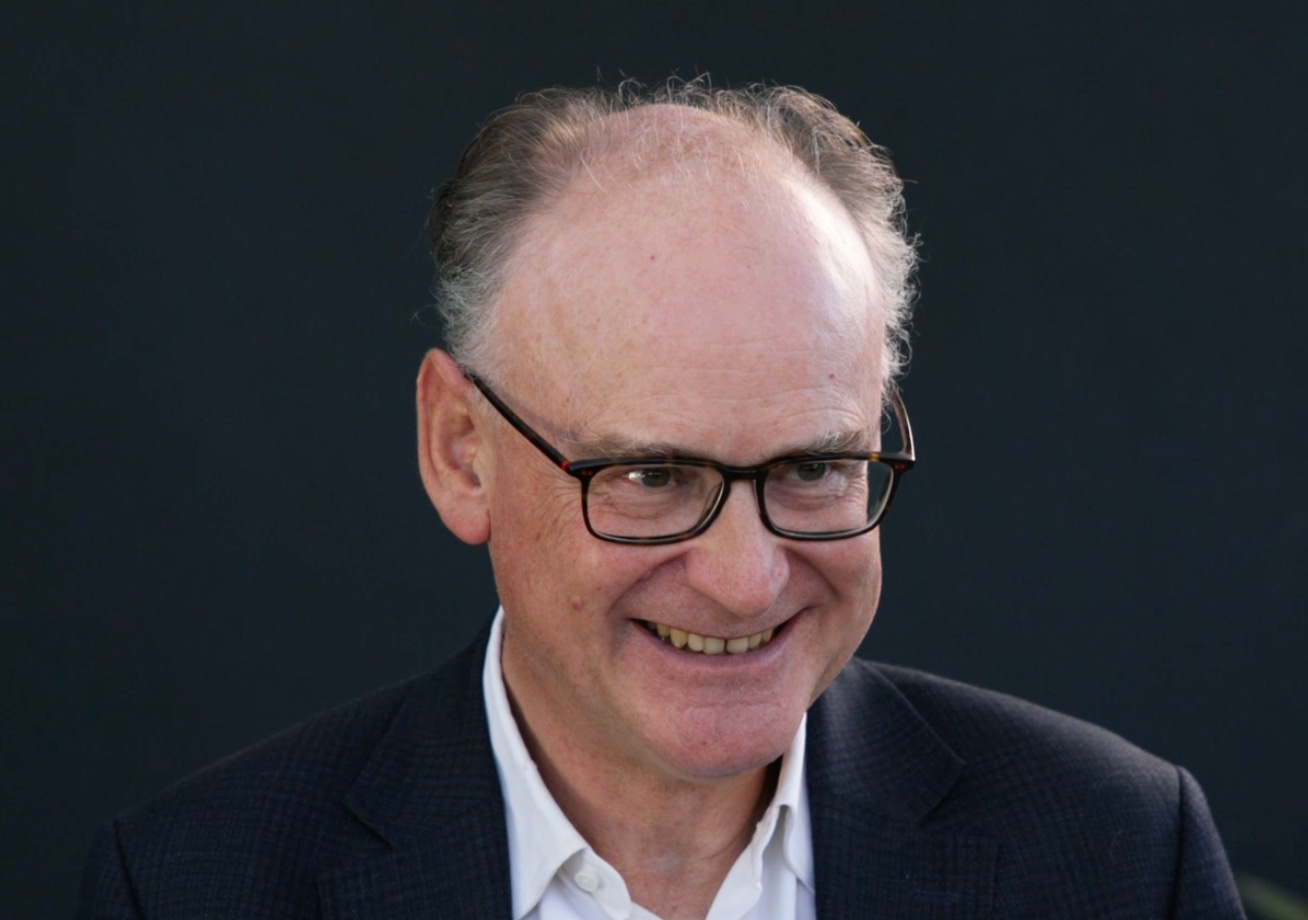
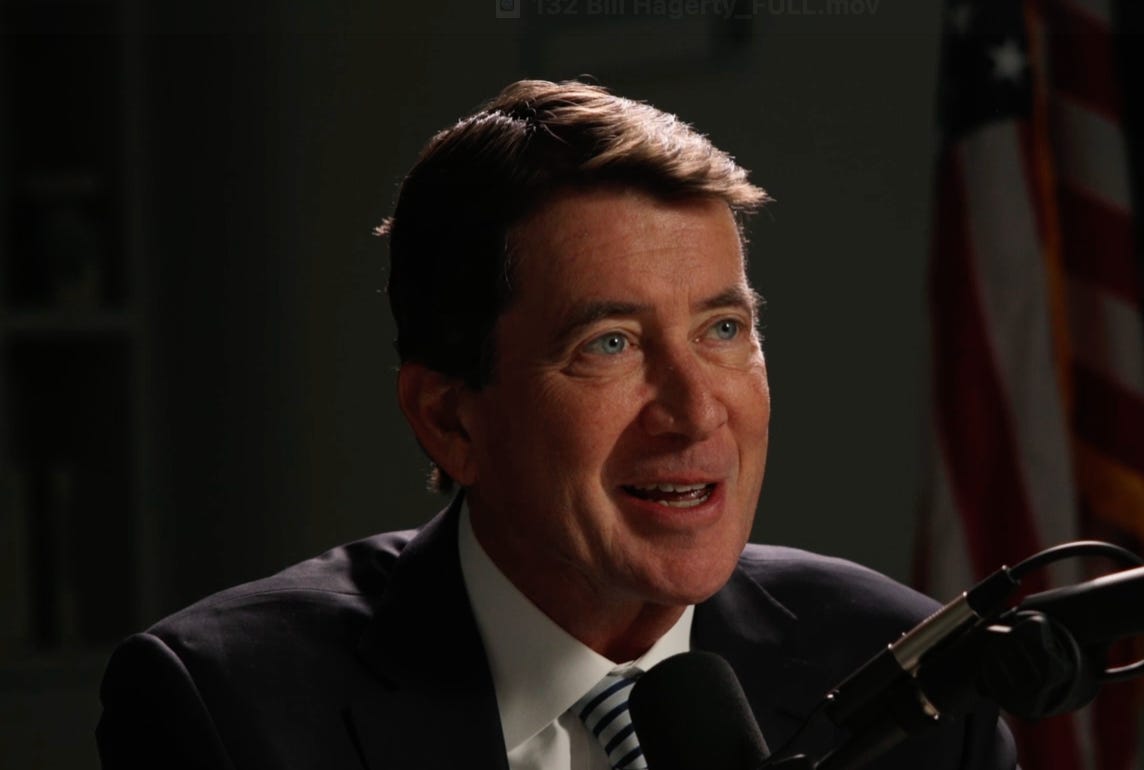
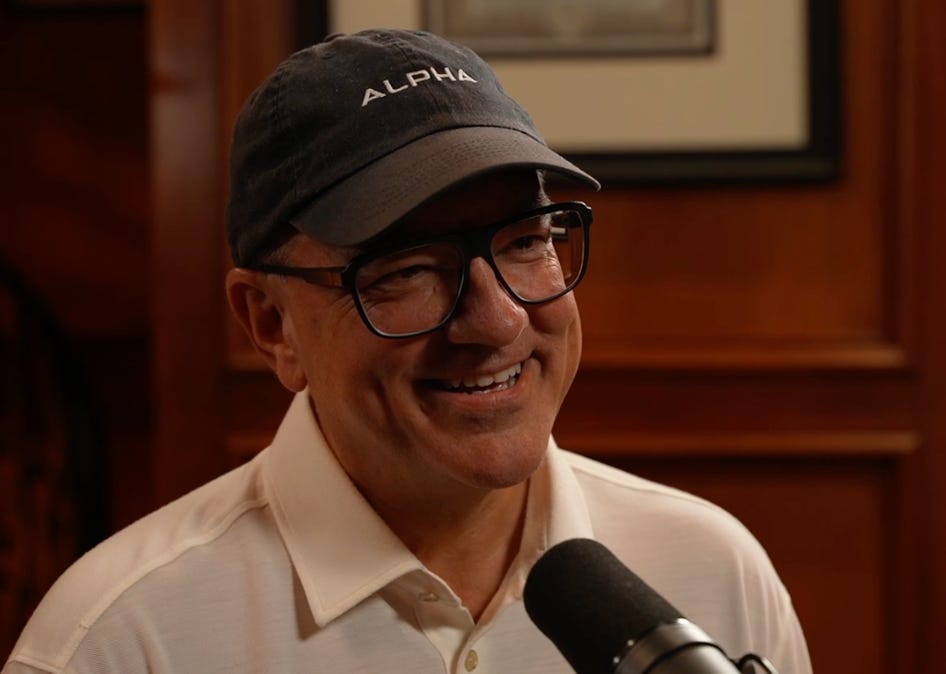
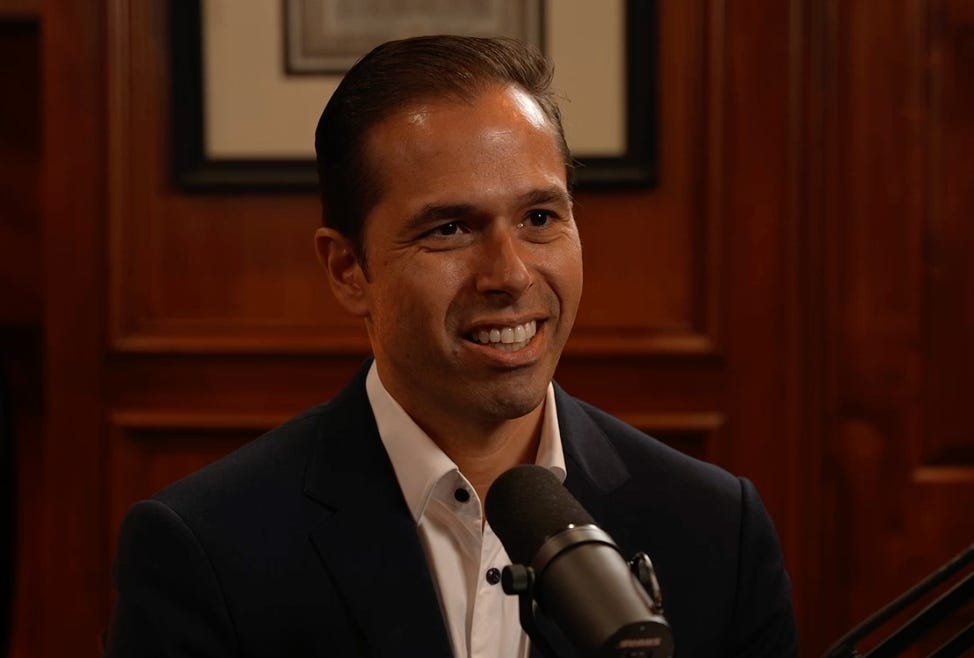
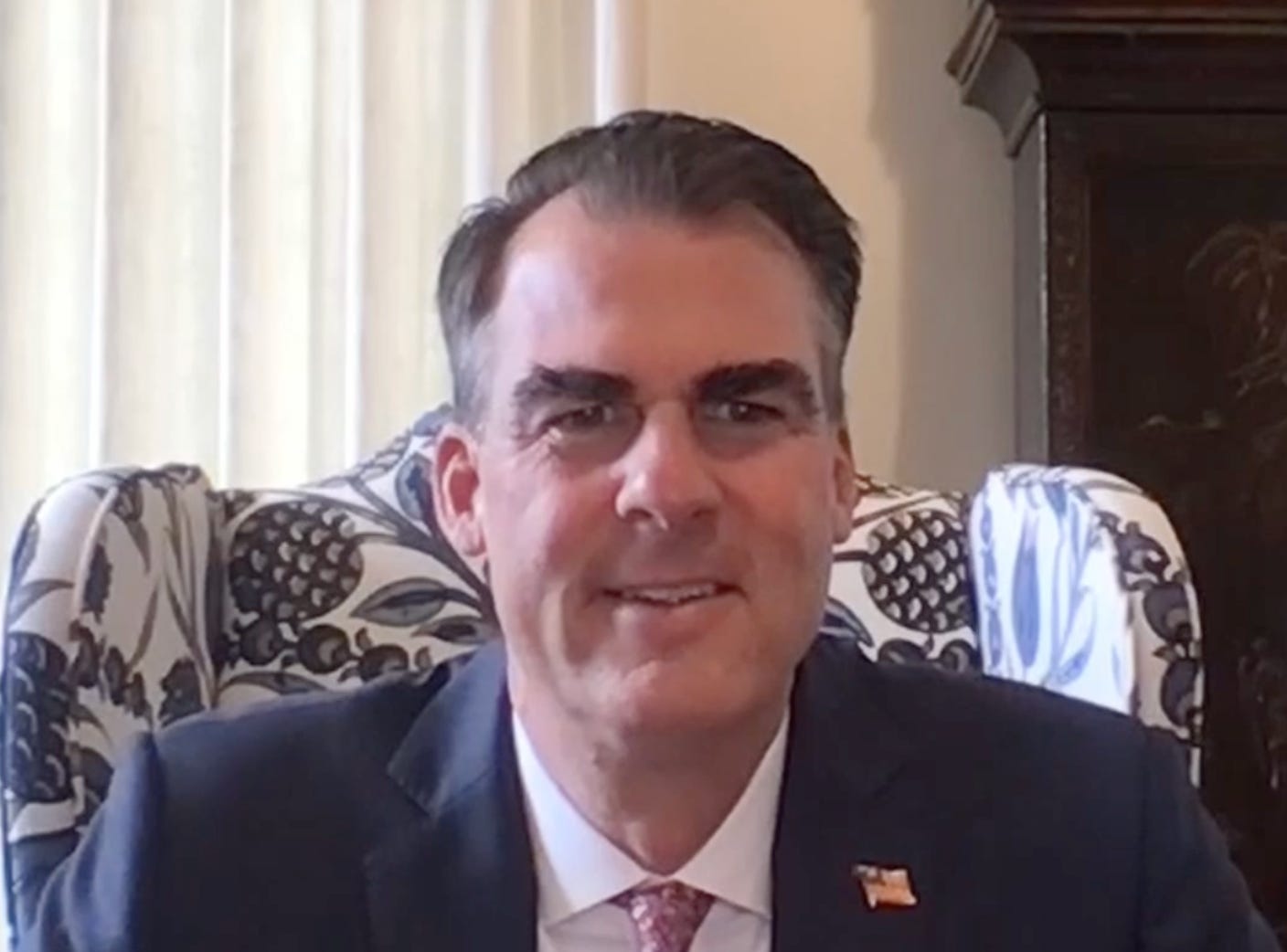
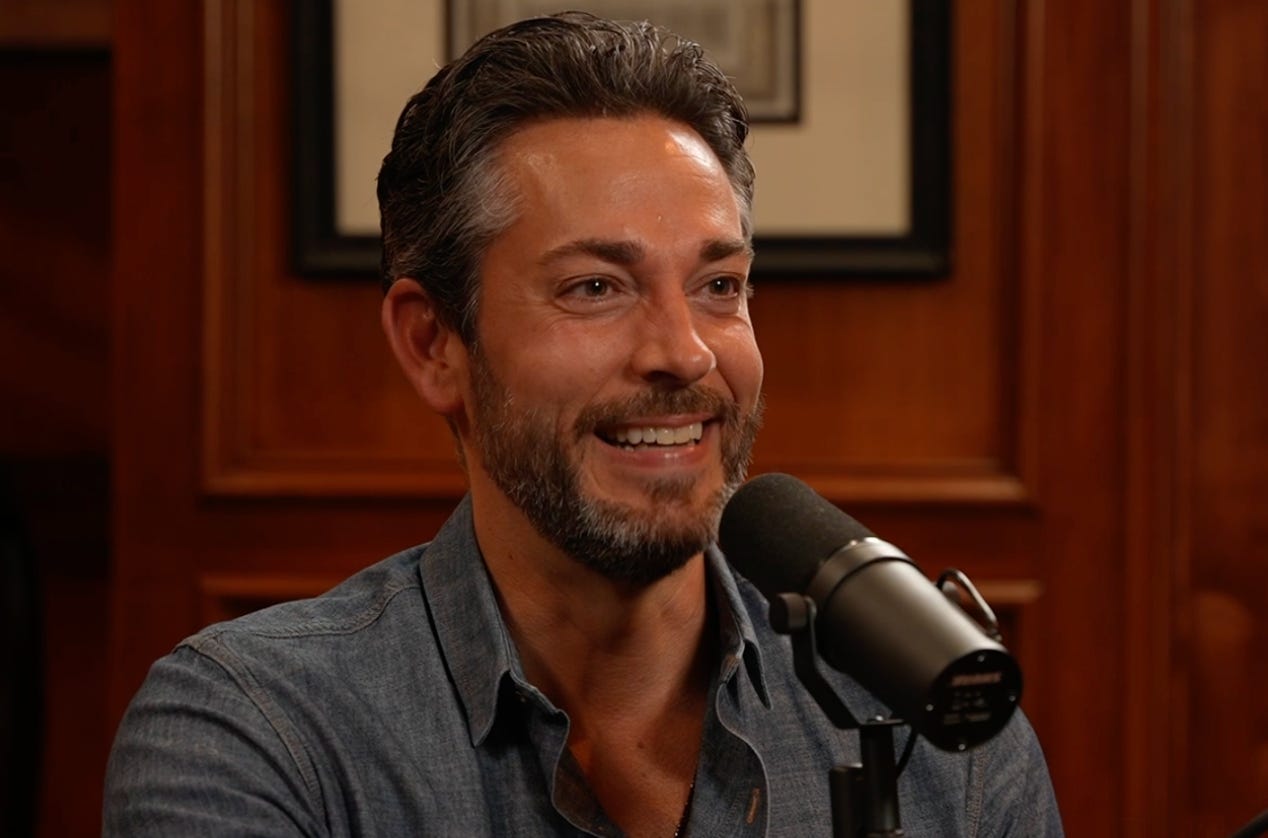
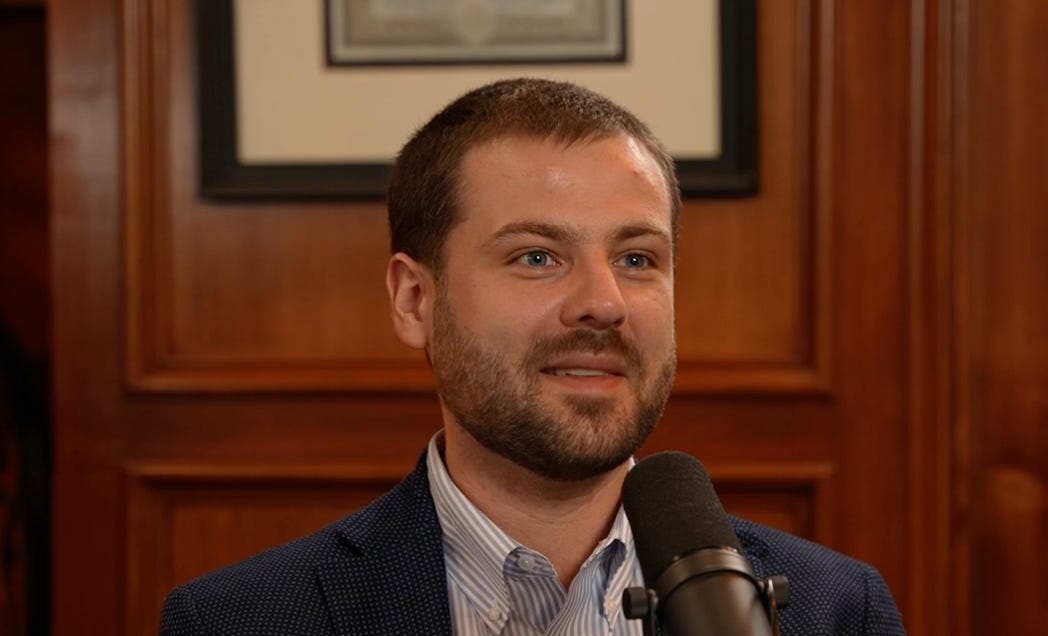
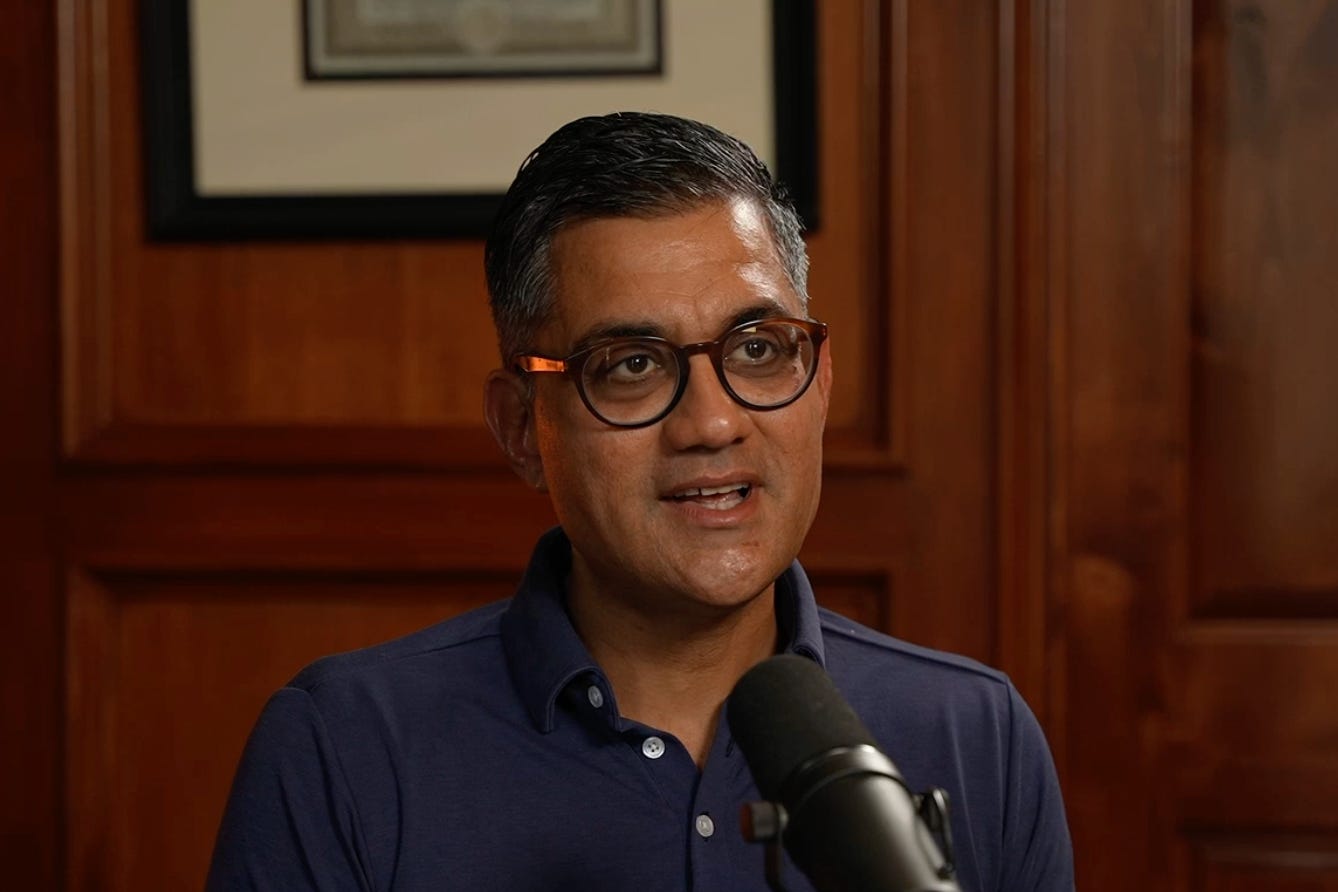
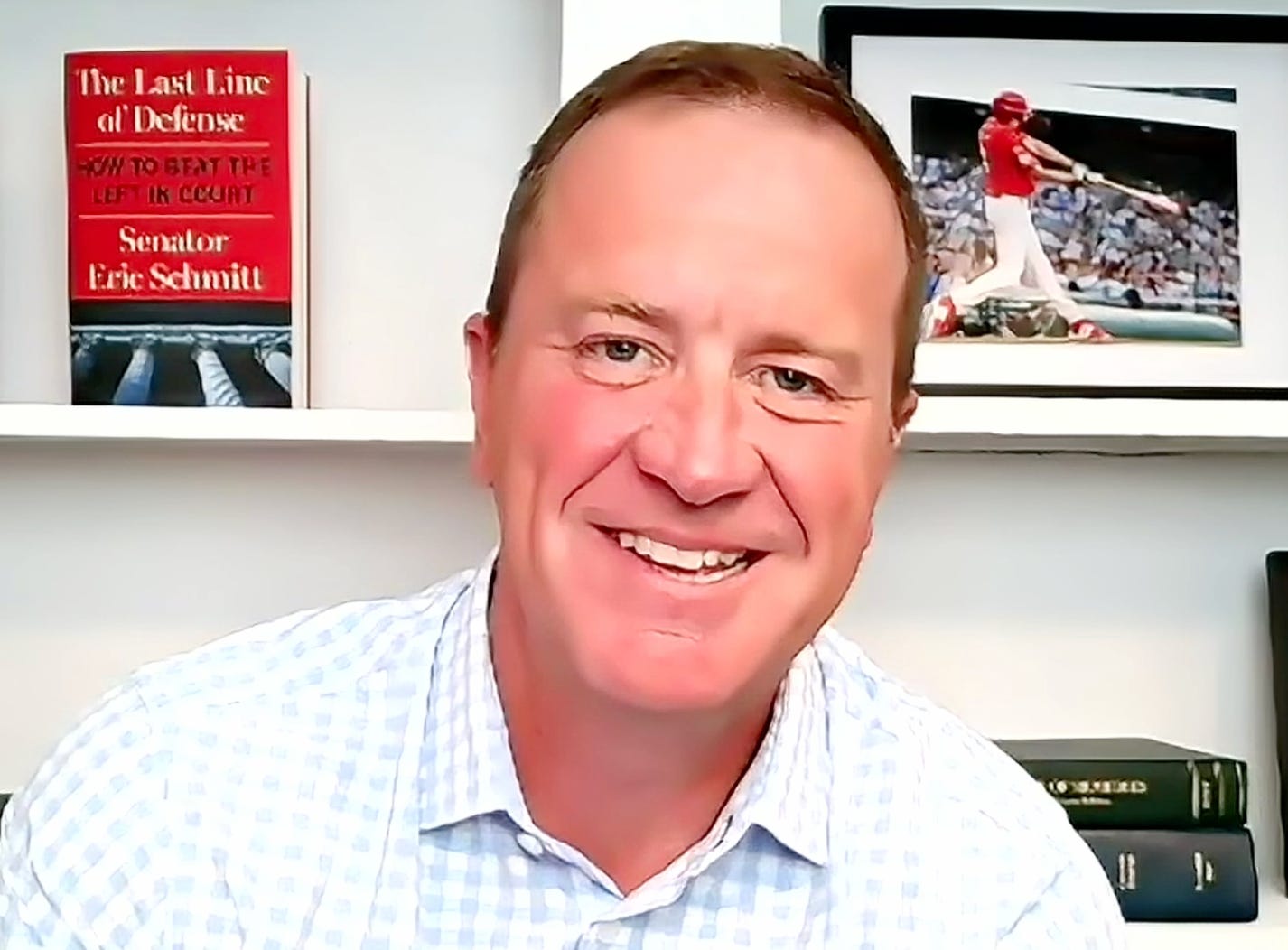
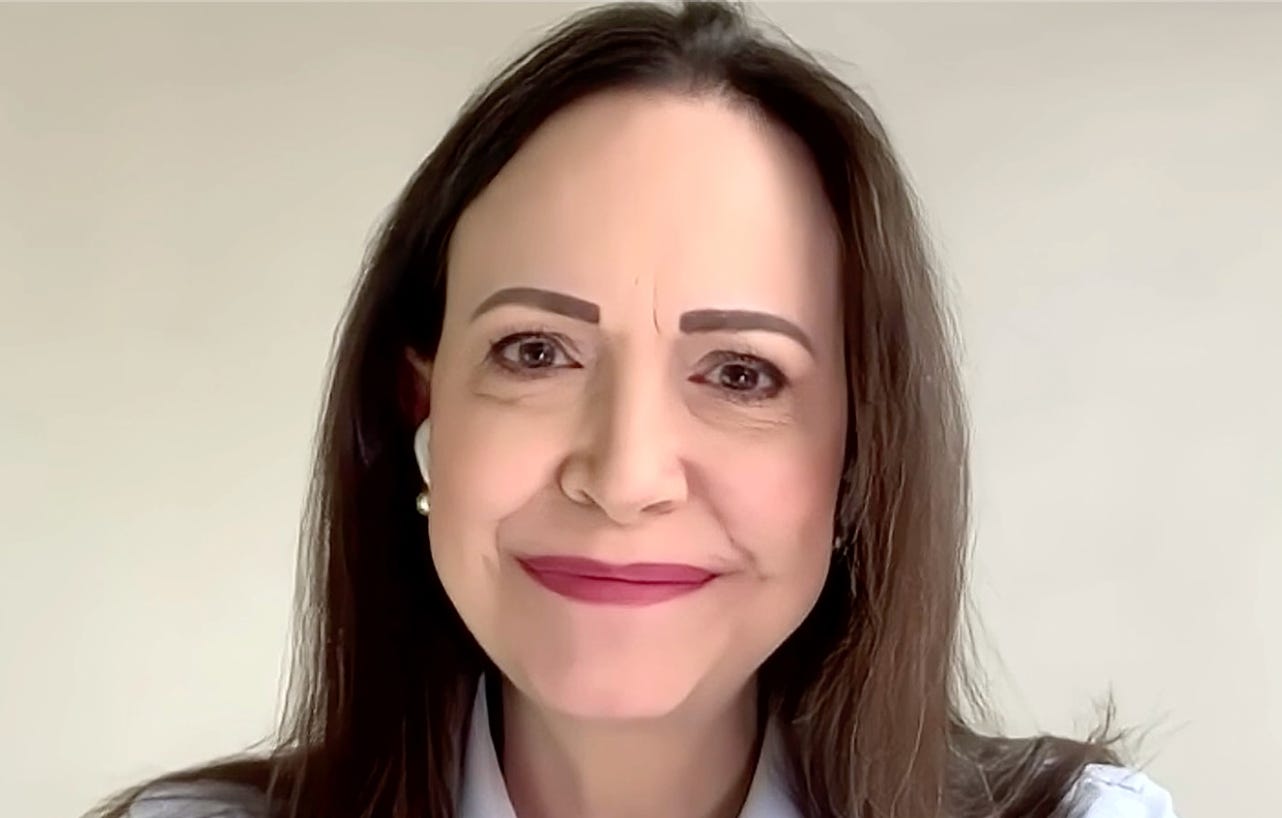
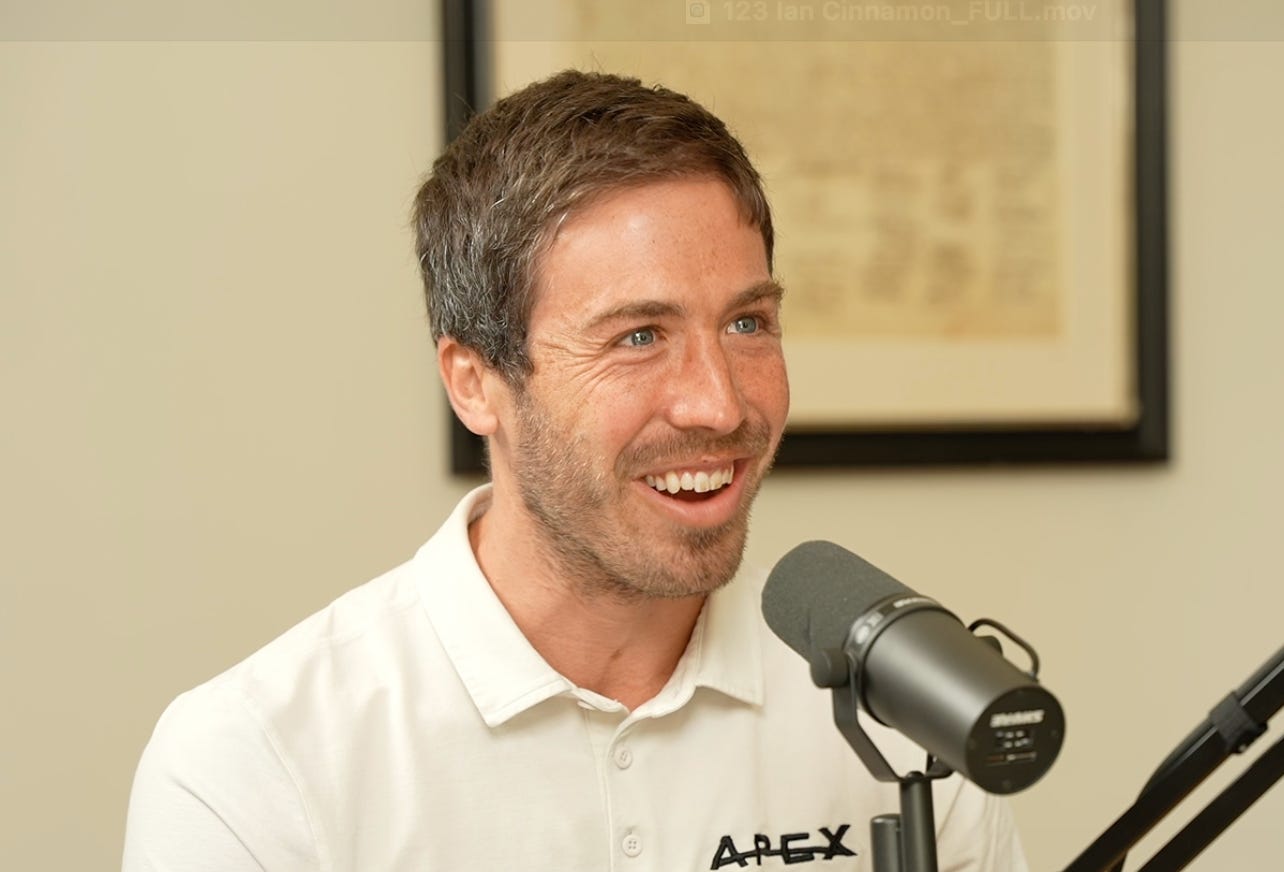
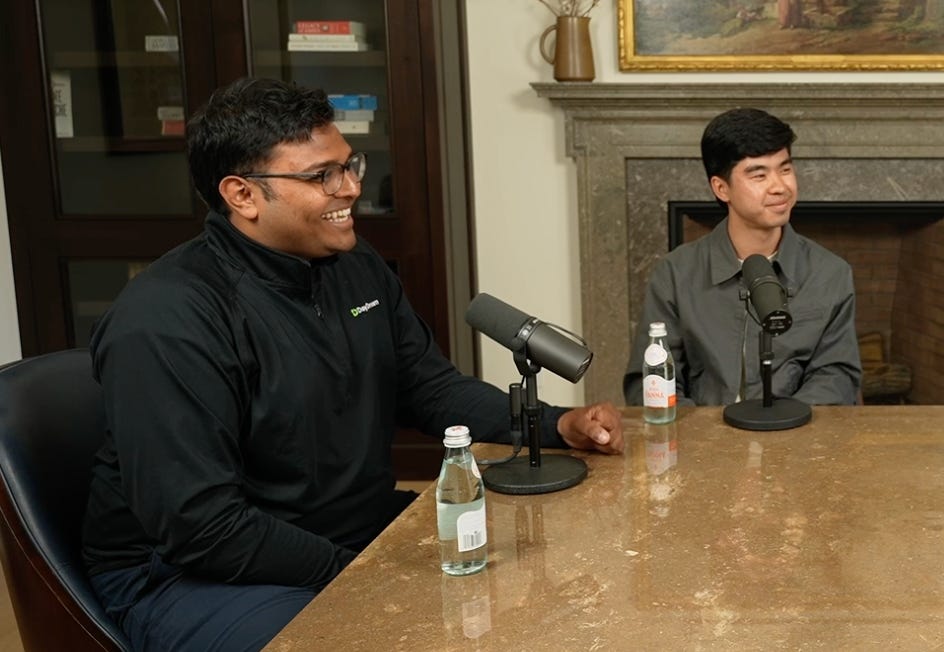
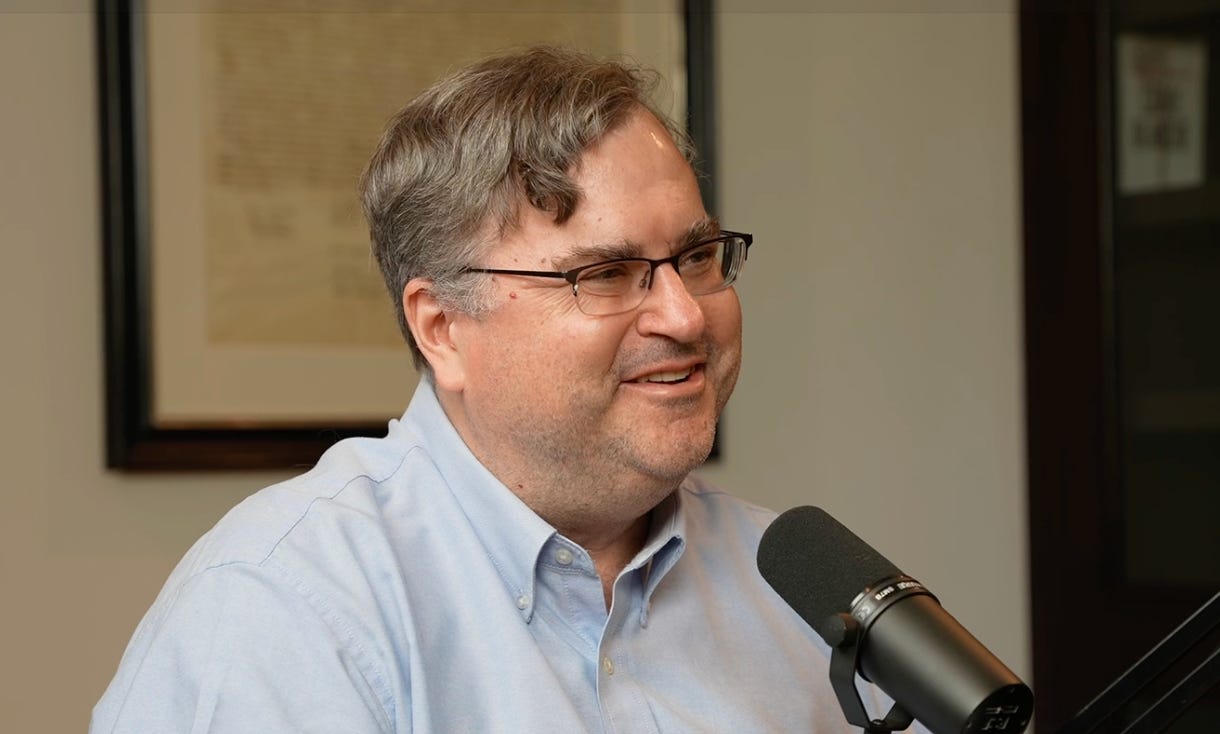
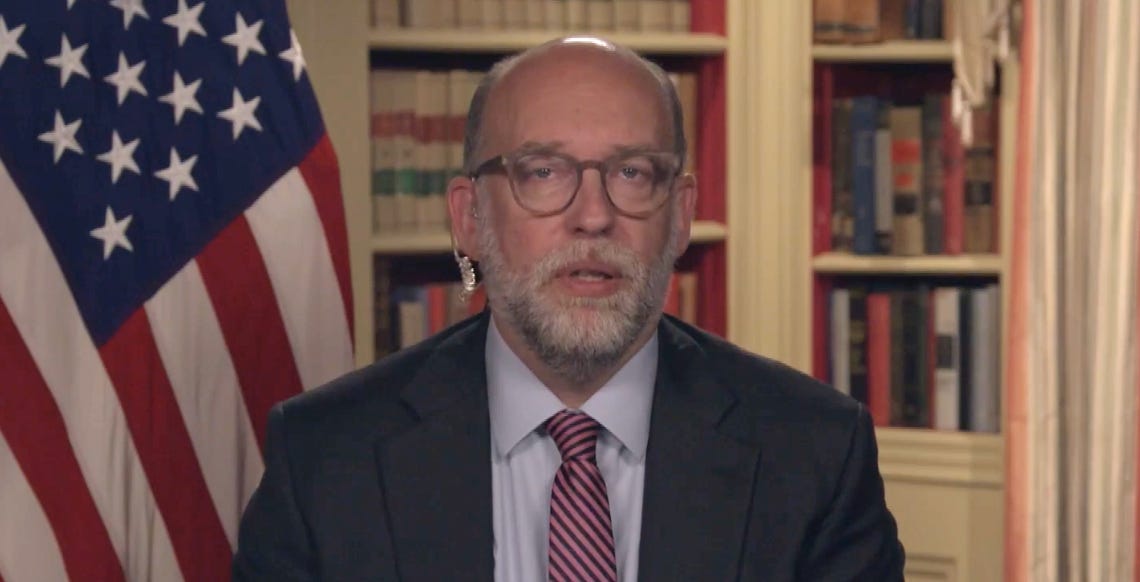


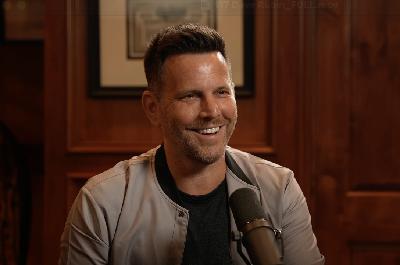



💚WATCH>>ᗪOᗯᑎᒪOᗩᗪ>>👉https://co.fastmovies.org